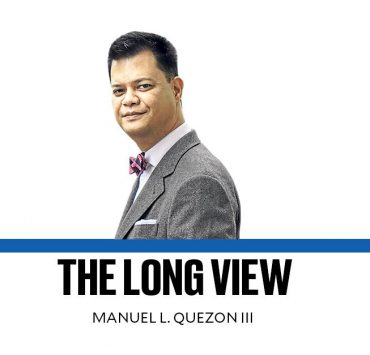Another blow to PH reputation

The initial report was alarming enough: Nine foreign nationals and two Filipinos had been apprehended at the Mactan-Cebu International Airport over the weekend for carrying an unexplained P441.92 million, $168,730, and 1,000 Hong Kong dollars in cold cash.
The timing of the transport plus the involvement of six Chinese nationals, a Malaysian, Indonesian, and Kazakh immediately suggested, however, that the crime extends well beyond mere possession of a suspiciously large amount of cash in local and foreign currencies.
Indeed, the Philippine National Police expressed “serious concerns” that the money contained in the seven trolley bags that the detained individuals were supposed to bring to Manila aboard a private plane was going to be used for illegal election-related activities, including vote-buying and money laundering.
“The involvement of multiple foreign nationals strongly suggests the alarming possibility of foreign interference in our sovereign electoral process,” the PNP added in a statement.
As further investigation turned out, two of the arrested Chinese nationals were involved in separate criminal cases while a third one was the subject of a fraud notice from Interpol.
When questioned about where they got the cash, the individuals claimed that they had won at a casino in Cebu and that they were brought to the country by White Horse Club, one of two junket operators whose electric wallets had been used for the P200 million ransom paid by the family of Chinese Filipino businessman Anson Tan. Also known as Anson Que, the businessman and his driver were kidnapped and killed last month.
Network of foreign syndicates
Then, the bulk of the money was cashed out using another account at Cambodia-based Huione Pay, which is in turn being investigated by the US government for money laundering, according to the PNP.
“This is no longer just about ransom. It’s about a vast shadow economy of crime that’s infiltrating and abusing our financial system,” said Surigao del Norte Rep. Robert Ace Barbers, who chairs the House Committee on Dangerous Drugs and the Quad Comm, which investigated, among others, the surge of criminal operations tied to Philippine offshore gaming operators that the Marcos administration banned in 2024.
“What we’re dealing with is a deeply entrenched network of foreign syndicates using the Philippines as a safe haven for financial crimes,” he added.
The Philippines just exited last February from the grey list of countries under “increased monitoring” by global financial crimes watchdog Financial Action Task Force (FATF), precisely due to hard-won reforms to improve transparency and enhance enforcement to protect the Philippine financial system against money laundering and from being used as a haven for terrorism funds.
Casino junket operators
However, the revelation of the complex money trail involving the ransom payment plus feared vote-buying indicates that there remain gaping loopholes that are being exploited by increasingly digital savvy and brazen criminals to facilitate these serious crimes, thus must be immediately plugged.
Indeed, regulatory bodies from the Anti-Money Laundering Council (AMLC) to Philippine Amusement and Gaming Corp. (Pagcor) must waste no time and immediately review their processes and tighten oversight of casino junket operators and cryptocurrency transactions, and even e-wallets.
The AMLC chaired by Bangko Sentral ng Pilipinas (BSP) Gov. Eli Remolona Jr. is already leading the way, vowing to work closely with the PNP, Pagcor, and the casinos to investigate the alleged money laundering of the ransom money that was originally paid in pesos and dollars but later converted to cryptocurrency, making it harder to trace.
Conduit of illicit activities
AMLC said in a statement that it was also coordinating with the Securities and Exchange Commission, the BSP, and foreign financial intelligence units to gather more information on the movement of funds from the Philippines.
“Through this ongoing investigation, the AMLC reaffirms its dedication to upholding financial integrity, supporting the immediate resolution of this case, and ensuring that the Philippine financial system does not become a conduit for illicit activities,” it added.
AMLC’s efforts are laudable as the Philippines must not allow the gains achieved through painstaking efforts by various government agencies and the legislative branch to improve the country’s compliance with global anti-money laundering and counter-terrorism financing standards to be reversed.
Such an intricate web connecting casinos, digital accounts, and cryptocurrency platforms to potential nefarious kidnap-for-ransom schemes, vote-buying, and money laundering should merit a thorough and urgent investigation by the Marcos government, as the very integrity of the country’s financial and electoral systems, as well as national security, are being put at serious risk.

















